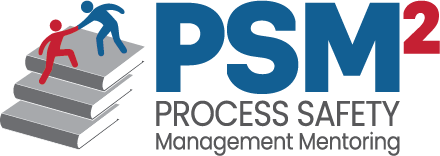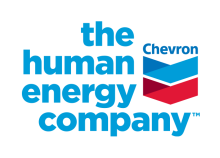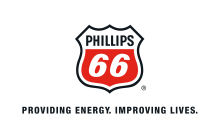13th Process Safety Management Mentoring (PSM2) Symposium

The Process Safety Management Mentoring (PSM2 )Symposium is one of five parallel tracks which together comprise the Global Congress on Process Safety (GCPS). The PSM2 Symposium is a tutorial-based track aimed at professionals who may be new to the field of process safety, those who now have a management role in process safety, and those interested in strengthening their knowledge of process safety. The principles behind the PSM2 Symposium are to highlight tools, techniques, and lessons learned that would enhance the audience's understanding of the applications of process safety management.
Encouraged topics for this conference include, but are not limited to:
- Tutorials in Process Safety
- What I Want to Be When I Grow Up-Careers in Process Safety
- Lies We Tell Ourselves – Cognitive Bias and Human Performance in Process Safety
- What is Hiding Under the Radar?
- Conduct of Operations
- What Should be Keeping You Up at Night but Isn’t
- The Day PSM Hit Home
- People of Process Safety – What we need to Know
- What is Process Safety Culture and How Does It Apply to Me?
- The Faces of Process Safety: Process Safety Mentoring for Our IDEAL Workforce
- PSM in Uncertain Times
- RAGAGEP Interpretation and Implementation
PSMM Chair & Vice Chair:
-
Bill Mosier and Todd Drennen, PSMM_chair@aiche.org
Session Topic Descriptions:
Tutorials in Process Safety – six sessions in partnership with other tracks in the 2020 GCPS for Call for Abstracts (CFA)
The objective of these sessions is to provide process safety introductory and basic key skill sessions tutorials for attendees and are co-sponsored by three main symposia tracks in the Global Congress: Loss Prevention Symposium (LPS), the Center for Chemical Process Safety (CCPS) International Conference, and the Process Plant Safety Symposium (PPSS). Examples of topics include the following:
- Loss Prevention Symposium (LPS) – focused on technological advances in process safety
-
Potential LPS Tutorial session(s) include modeling, consequence, and risk analyses of fires, explosions (including combustible dust), a new development in failure databases, toxic releases, and reactive chemicals; siting of buildings and equipment; explosion prevention; pressure relief systems; and fire protection.
-
-
Center for Chemical Process Safety (CCPS) International Conference – focused on promoting and advancing process safety management practices
-
Potential CCPS Tutorial session(s) include Risk Based Process Safety (RBPS); understanding process hazards and risks; managing process risks; extreme weather safety planning; and learning from the experience of senior colleagues.
-
- Process Plant Safety Symposium (PPSS) – This tutorial is focused on the application of best practices for personnel at the plant level
- Potential PPSS Tutorial session(s) include practical applications of process safety management principles (see CCPS RBPS elements); risk analyses; asset integrity/mechanical integrity, conduct of operations, layers of protection analyses; operational discipline and the influence of human factors
What I Want to Be When I Grow Up - Career in Process Safety
Session sponsored by the Careers and Education Committee of the Safety & Health Division
The objective of this session is to discuss career paths in Process Safety. It is a call for four speakers to each provide a 15 min presentation on their career path and then participate in a 30 min panel Q&A session based on the following premise:
How can attendees use their chemical engineering education to protect people and the environment from hazardous situations? How can they contribute to the safe and sustainable operation of manufacturing facilities?
Lies We Tell Ourselves – Cognitive Bias and Human Performance in Process Safety
This session will focus on preventing overconfidence bias and maintaining a sense of vulnerability in continuous improvement of process safety programs and performance.
Humans are not great at assessing risk. Engineers in particular tend to be an optimistic group, ready to solve any problem by relying on their technical skills and experience. They are particularly bad when it comes to assessing high consequence, low frequency events like those typically discussed during a Process Hazard Analysis (PHA). They may fail to fully grasp the meaning of measurement in unfamiliar units, like risk criteria expressed in terms of once in a million years. Papers in this session will discuss several lies we tell ourselves when confronted with the need to identify worst case scenario such as “It can’t happen here”, “It can’t possibly be that bad”, “We will know there is a problem and we will fix it”, and “We can engineer our way out of this”. This session is aimed to be fundamental concepts to be shared with those new to the profession or early in their career.
What is HIding Under the Radar? – focused on overlooked process safety and reliability issues?
Protection and mitigation measures are put in place, but they may not always be implemented and maintained in a manner that assures continued availability and reliability. How do we identify and correct these issues? Potential topic areas include examples from mechanical systems (piping & other fixed or rotating equipment), administrative and procedural controls, basic process control systems and alarms, safety instrumented systems, fire protection systems, critical utilities, infrastructure, and containment systems. What does “PSM critical” or “important to PSM” mean?
Conduct of operations, or often referred to as operational discipline, is the execution of operational or management tasks in a structured manner. Procedure compliance, adherence to approved operating limits, emergency shutdown authority, stop work authority, and other activities are all critical attributes of process safety. Other critical attributes and activities in process safety programs, e.g., fitness for duty, fatigue management, formal shift turnover, etc. are also part of Conduct of Operations. These attributes extend or supplement the classic elements of process safety programs. This element of process safety/RBPS is very sensitive to the prevailing process safety culture. This session invites speakers to describe the principles and features of the management systems that support Conduct of Operations, the influence of culture on the attributes of Conduct of Operations, as well as examples of programs to improve it and metrics to monitor it.
What Should be Keeping You Up at Night but Isn’t: Things Everyone Should Know about Process Safety – focused broadly on process hazard recognition and lessons learned from careers in Process Safety
Process hazards can go unrecognized or underappreciated for a variety of reasons. Ignorance of the hazard is a convenient excuse after an incident. This session is intended to be a preemptive strike against this ignorance. Unlike the Day PSM Hit Home, the talks in this session need not be motivated by an incident. Rather, talks should focus on the incident that hasn’t occurred, and how to recognize it. Example topic areas include investigation and sharing of lessons learned from near misses, hazard identification, operational discipline, human reliability, process safety culture, and what lies behind the “mass of safety metrics.” Presentations of client/consultant shared case studies which could provide learning outcomes other companies could follow are encouraged to submit here.
The Day PSM Hit Home – focused on sharing first-hand experiences that led to a personal commitment to process safety…
Many process safety professionals have lived and worked through “learning experiences” that made them realize just how critical a good process safety program is. The three speakers will share how significant incidents changed their view on how they understand and apply process safety principles as a result of the experience. Prospective speakers that are willing and able to share such an experience are encouraged to submit an abstract briefly outlining the event and lessons learned.
People of Process Safety – What we need to Know – focused on strategies and lessons to be learned when bridging the gap between “the newly qualified or new to the role” and professional expectations in the field of process safety.
It is a call for four speakers to each provide a 15 min presentation and then participate in a 30 min panel Q&A session based on the following premise:
“To give those new to process safety, those who seek to expand or refresh their knowledge, and experienced professionals who can stand back and reflect on their current practices an opportunity to learn about some of the current challenges Process Safety Professionals face in their daily activities.”
This session will share best practices and lessons learned for mid- and late-career professionals in supervisory roles, tasked as mentors to young professionals in the field of Process Safety, while also providing benefit to those newer to the field. Additionally, engineers new to PSM are encouraged to share challenges, success stories, and their unique perspective within this panel session to provide the “new to PSM” perspective.
What is Process Safety Culture and How Does It Apply to Me? – focused on defining process safety culture and how new process safety professionals can support a strong process safety culture?
Process safety culture has been defined as “the combination of group values and behaviors that determine the manner in which process safety is managed.” More commonly, it is simply “how we do things around here.” Many new process safety professionals struggle to understand what process safety culture is and how it applies to them. This session invites papers that provide a introductory overview of process safety culture, characteristics of a strong safety culture, and the responsibility of every employee to support and strengthen their company’s process safety culture.
The Faces of Process Safety: Process Safety Mentoring for Our IDEAL Workforce – focused on a movement committed to driving action, by opening doors and eliminating barriers to advancement for people of diverse backgrounds and experiences.
This session will have 4 speakers to each provide a 15-minute presentation then participate in a 30-minute panel Q&A session based on the following premise:
“To give those new to process safety, those who see to expand or refresh their knowledge, and experienced professionals who can reflect on their current practices and provide an opportunity to learn about real life equal opportunity challenges for process safety and how to develop and achieve success.”
This session will be based on the AIChE Inclusion, Diversity, Equity, Anti-racism, and Learning (IDEAL) commitment.
AIChE believes that all who wish to be a part of the chemical engineering community should have equal opportunity to pursue and achieve success. We work toward a better future for all —through our technical expertise; through how we inspire, engage, retain, and advance future talent; and through how we treat each other within and beyond the profession. Solutions to 21st century problems require innovation and creativity, which are accelerated through diverse teams and by ensuring that spaces are inclusive.
PSM in Uncertain Times – focused on strategies and lessons learned from practicing PSM in uncertain times.
A couple years ago we were in the middle of a global pandemic and saw several significant process safety incidents. Now we are on the other side of the global pandemic and feel the effects of economic strain, supply chain changes and workforce and working dynamic changes. These can still be considered uncertain times and there are still lessons to be shared and learned to prevent process safety incidents. How has PSM changed at your company / facility due to the economic uncertainty, COVID-19, natural disasters, socioeconomic issues, etc.? Potential topics include best practices, challenges faced, management of change, and lessons learned from practicing PSM during uncertain times.
RAGAGEP Interpretation and Implementation
In the world of process safety, the amount of Recognized and Generally Accepted Good Engineering Practices (RAGAGEP’s) can be overwhelming. This session will provide introductions and overviews of various types of RAGAGEP’s along with challenges and successes for navigating this landscape.
GCPS Joint Session: Case Histories
Reviews of process safety incidents provide valuable learning opportunities. This session invites papers to help understand the causes and lessons learned from incidents in the industry with an emphasis on events that have helped define and develop the process safety field over the years.















